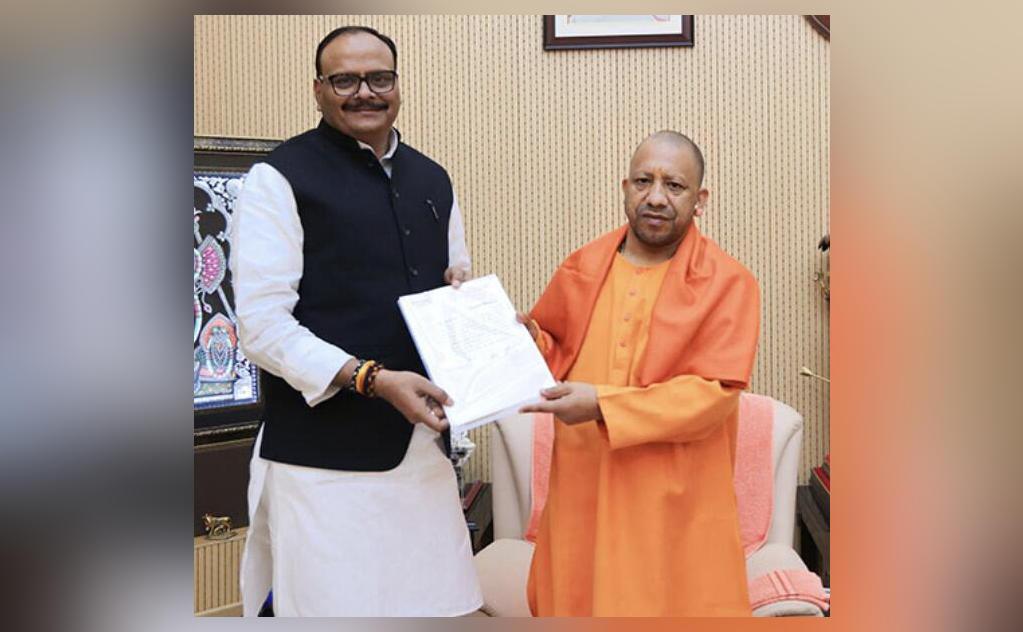
Here is the blog post:
Indecent & Vulgar: UP CM on SP’s Post Against Dy CM Pathak
In a recent turn of events, Uttar Pradesh Chief Minister Yogi Adityanath has condemned the alleged objectionable remarks made against Deputy Chief Minister Brajesh Pathak on the Samajwadi Party’s official Twitter handle. The Chief Minister has termed these comments as “indecent and vulgar”, and has urged the party’s top leadership to thoroughly review its social media handles.
The controversy began when the Samajwadi Party took to its official Twitter handle to share a series of posts that were perceived to be derogatory and offensive towards Deputy Chief Minister Brajesh Pathak. The posts, which were quickly deleted, sparked widespread outrage and condemnation from various quarters, including the Uttar Pradesh government.
Reacting to the development, Chief Minister Yogi Adityanath termed the comments as “indecent and vulgar”, stating that although it is futile to expect ideal conduct from the Samajwadi Party, a civilized society cannot tolerate such statements. “Although it’s futile to expect any ideal conduct from the SP, a civilised society cannot tolerate their…statements,” Adityanath said.
The Chief Minister’s statement comes at a time when the political landscape of Uttar Pradesh is witnessing a fierce battle between the ruling Bharatiya Janata Party (BJP) and the opposition Samajwadi Party. The SP has been known for its provocative and controversial statements, but this latest incident has sparked widespread outrage and condemnation.
The controversy has also raised questions about the party’s social media strategy and the kind of content it allows on its official handles. Many have questioned the party’s responsibility to ensure that its social media handles do not spread hate speech, vitriol, and misinformation.
The Chief Minister’s call to review the party’s social media handles has also sparked a debate about the role of social media in politics. While social media has become an essential tool for political parties to connect with their supporters and spread their message, it has also been criticized for its ability to spread hate speech and misinformation.
In recent years, social media platforms have faced criticism for their inability to regulate hate speech and misinformation. The platforms have been accused of allowing hate speech to spread unchecked, and have been criticized for their lack of transparency in dealing with such content.
The controversy has also raised questions about the accountability of social media companies and their role in regulating the content that is spread on their platforms. Social media companies have been accused of prioritizing profits over the well-being of society, and have been criticized for their lack of transparency in dealing with hate speech and misinformation.
As the controversy continues to rage on, it is clear that the issue of social media regulation and accountability is a pressing concern that needs to be addressed. The Chief Minister’s call to review the party’s social media handles is a welcome step towards ensuring that the party’s online presence is responsible and respectful.
In conclusion, the incident highlights the need for social media regulation and accountability. Social media companies must take responsibility for the content that is spread on their platforms, and must take steps to ensure that hate speech and misinformation are eradicated. The Chief Minister’s call to review the party’s social media handles is a welcome step towards ensuring that the party’s online presence is responsible and respectful.






